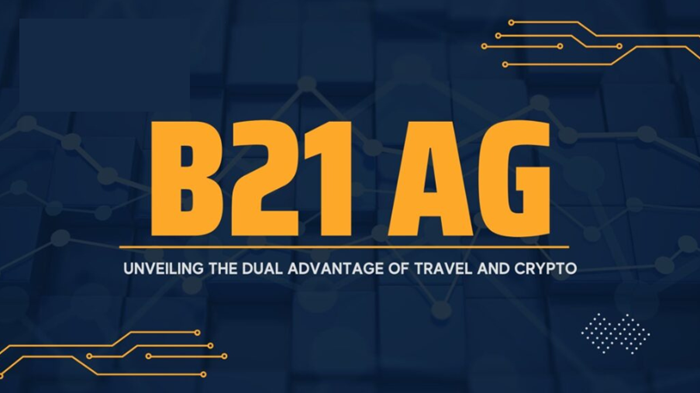The adoption and popularity of the cryptocurrency market have increased recently as more firms and investors want to take advantage of the potential offered by this developing sector. But with enormous potential also comes great responsibility, and it is now more important than ever to have regulatory control.
The regulatory changes that influence the cryptocurrency market’s landscape increase along with the market’s expansion. Regulators are looking more closely at cryptocurrencies and their effects on the financial system, including the Securities and Exchange Commission (SEC), Internal Revenue Service (IRS), Commodity Futures Trading Commission (CFTC), and individual states. The regulatory changes in the US crypto market and their effects on investors and businesses in the sector will be examined in more detail in this blog.
Although regulatory changes may not seem like the most interesting issue, they are extremely important in forming the cryptocurrency market and defining its future. These advances, which include defining cryptocurrencies more precisely, establishing guidelines for initial coin offerings (ICOs), and regulating cryptocurrency exchanges, directly affect the stability and growth of the sector. So, buckle on and get ready for an overview of the present regulatory environment in the US crypto sector that will be both educational and (hopefully) entertaining.
SEC guidelines
One of the most important regulatory authorities when it comes to the cryptocurrency industry in the USA is the Securities and Exchange Commission (SEC). The SEC has been actively supervising the purchase and exchange of cryptocurrencies in recent years, as well as the operations of companies involved in the sector.
The definition of cryptocurrencies is one of the SEC’s key areas of interest, and the agency is working to make it clear which digital assets are and are not securities. Furthermore, the SEC has developed regulations for security token offers (STOs) and initial coin offerings (ICOs), two well-liked crypto market fundraising techniques. The SEC also controls cryptocurrency exchanges, ensuring that they adhere to federal securities rules and safeguarding investors from manipulation and fraud. Overall, the regulatory changes made by the SEC in the crypto market have significantly shaped the landscape of the sector and promoted increased accountability and transparency.
IRS Guidelines
Particularly when it comes to taxation, the Internal Revenue Service (IRS) has been actively involved in regulating the cryptocurrency industry in the USA. Since the IRS views cryptocurrencies as property, buying and selling them can result in capital gains or losses, and people must declare these transactions on their tax returns.
Additionally, the IRS has published guidelines for the taxation of cryptocurrency mining, which entails the creation of new coins and the verification of transactions on the blockchain network. Mining-related expenses may be written off as business expenses, and miners must record their profits from mining as taxable income.
Overall, the IRS’s regulatory initiatives in the crypto sector are designed to make sure that people and organisations follow the law when using cryptocurrency. In order to avoid potential fines and legal troubles as the crypto market expands, it is crucial for investors and businesses to stay current with the most recent IRS laws.
CFTC Guidelines
Another crucial regulatory organisation for the US crypto sector is the Commodity Futures Trading Commission (CFTC). Cryptocurrencies are now governed by the same laws as other commodities that are traded on futures exchanges because the agency has classed them as commodities.
The CFTC has also developed regulations for cryptocurrency futures trading, enabling investors to bet on the price alterations of digital assets through derivatives contracts. To ensure that they are traded on licenced exchanges and that investors are safeguarded from fraud and manipulation, the government also enforces stringent controls on cryptocurrency derivatives.
Overall, the regulatory changes made by the CFTC in the cryptocurrency market have increased the industry’s legitimacy and clarity, enabling investors to engage in futures trading and other derivatives markets while preserving the stability of the financial system.
Governmental Rules
In addition to federal restrictions, the US states have actively participated in regulating the cryptocurrency market. The licencing requirements for bitcoin businesses include adhering to anti-money laundering (AML) and know-your-customer (KYC) laws in states including New York, California, and Texas.
Additionally, a number of states have passed money transmitter regulations that are applicable to organisations that transact in the transmission of cryptocurrencies. These laws mandate that these organisations obtain licences and adhere to specific reporting and record-keeping standards. State-specific regulations for cryptocurrencies have also been introduced in several states, such as Wyoming’s laws on digital assets and Vermont’s laws on blockchain-based LLCs.
Overall, the legislative changes made by individual US states show a growing understanding of the significance of the crypto sector and the demand for appropriate regulation and consumer protection. More states will probably implement laws that are specifically crafted to address the distinctive features of cryptocurrencies and blockchain technology as the industry continues to develop.
Regulation-related developments’ effects
The industry has been significantly impacted by the regulatory changes in the US crypto market, with effects on everything from cryptocurrency pricing to adoption rates. While certain rules have improved the industry’s credibility and clarity, others have increased market volatility.
The SEC’s designation of initial coin offerings (ICOs) as securities, for instance, has resulted in a decline in ICO activity and a shift towards security token offers (STOs). Similar to this, the IRS’s taxation guidelines has made it more challenging for people and businesses to appropriately report bitcoin transactions, which has caused uncertainty and the possibility of fines.
Overall, there are both good and negative implications of regulatory developments on the cryptocurrency sector in the USA. It will be crucial to strike a balance between the need for consumer protection and the possibility for innovation and growth as the industry continues to develop and rules change.
Regulations’ upcoming developments
Future legislative changes in the US crypto sector are anticipated to be influenced by a variety of variables, such as technology advancement, shifting market dynamics, and changing consumer preferences. Regulators will need to strike a balance between the potential for growth and innovation and the necessity for monitoring as the industry continues to develop and mature.
Future rules may include clearer tax reporting requirements, more control of bitcoin exchanges, and additional guidance on AML/KYC compliance. Regulators will nevertheless have to contend with issues including keeping up with quickly advancing technology, juggling conflicting interests, and enforcing regulations in a global marketplace.
Overall, regulatory changes in the US crypto sector are expected to be dynamic and ever-evolving, presenting both opportunities and difficulties. It will be crucial for regulators to collaborate with industry stakeholders as the business develops to strike the correct balance between innovation and oversight.
Conclusion
The sector has been significantly impacted by regulatory changes in the US crypto market, with effects on everything from cryptocurrency pricing to adoption rates. The Internal Revenue Service (IRS), the Commodity Futures Trading Commission (CFTC), the Securities and Exchange Commission (SEC), and certain states have all contributed to the development of the regulatory environment for cryptocurrencies.
While certain rules have improved the industry’s credibility and clarity, others have increased market volatility. Regulators will need to strike a balance between the potential for innovation and expansion and the requirement for control and protection as the industry continues to develop.
Looking forward, it is expected that regulatory changes in the US crypto sector will be dynamic and ever-evolving, with both possibilities and challenges. Investors and companies in the sector must keep abreast of regulatory changes and collaborate with authorities to strike the correct balance between innovation and oversight.
In terms of regulatory advancements, the crypto market in the USA has generally come a long way, but there is still more work to be done. It will be crucial for regulators to stay up with technological developments as the business develops and grows and to collaborate with stakeholders to ensure the industry’s success moving forward.
Read More You May Like:














Post Comment